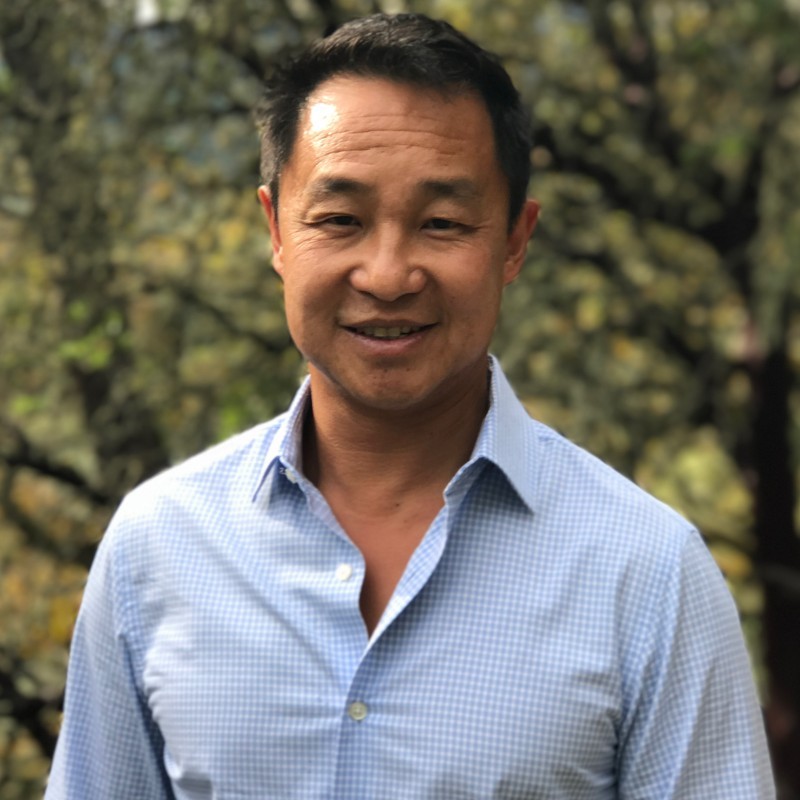In the developed world, almost anyone can get financing for, say, a car lease. But in an emerging economy like South Africa, the only people who own cars or can even get a car lease are the people who already have something to collateralize, or a payslip to work off. As a result, small businesses, especially in Africa, have a $5.2 trillion financing gap, according to the World Bank.
Untapped Global wanted to re-think this situation by allowing small businesses to use their ongoing revenues as collateral and enable that by being able to track their assets. So, for example, if an African entrepreneur wanted to buy a water treatment system for a new business, they wouldn’t normally be able to afford it. Instead, they could use the Untapped platform as collateral to get a machine, and Untapped would take a share of the revenue of the water they sell. So now they can start a business and start earning revenues without going through the process of doing a traditional lease of a machine.
Untapped has now launched the public beta of its platform, which uses real-time data to track the assets and revenue of the entrepreneurs who use its platform. The idea is to provide transparency for international investors looking to tap into Africa and other emerging markets. Funded by a $10.3 million USD debt and equity pre-seed round that closed in March, this platform uses a model called ‘Smart Asset Financing’. This enables it to finance revenue-generating assets for entrepreneurs and SMEs in emerging markets. It does this by using IoT from assets such as the network of motorcycles in a fleet or, say, a Wifi-connected ‘smart’ irrigation system.
The model thus assesses the risk of an investment to secure the returns for investors.
It’s now financed assets for over 5,000 entrepreneurs who work across sectors such as clean water, solar, e-mobility, and inclusive fintech. The company claims to have an annual revenue run rate of $2.5M.
Jim Chu, CEO and founder of Untapped Global, says Untapped is taking advantage of the wave of digitization that’s happening across Africa and other emerging markets, which now makes this model possible.

Jim Chu, Untapped Global
“We created Untapped to get capital to entrepreneurs in markets who are often excluded from funding opportunities, while simultaneously ensuring transparency for investors… Our data has shown that for every $1 invested, more than $3 of value is created in local economies,” he said in a statement.
Excitingly (for the planet), most of Untapped global’s portfolio companies are building climate action solutions, including solar irrigation farms, electric mobility companies, and clean water systems.
Chu says it only takes $300 to start investing in these entrepreneurs and there are no monthly fees, because the platform shows real-time data on the impact and activity of the investments.
Chu says he started investing in emerging markets about 12 years ago, investing in over 80 companies across Africa, mostly as an equity investor: “But I kept coming across deals that were like ‘Wow, this is a great company, great cash flows, but I would never invest in this company as there were no exits’, and other reasons. Equity investing would also impose a burden on the entrepreneurs.”
So he started doing revenue-based financing, taking a percentage of the revenue going forward. But he then started coming across companies that were essentially tech-enabled companies that had figured out that their customers needed some kind of embedded financing in their product. Most of these companies were hardware companies, using motorcycles, cars, or similar. But these were rapidly also becoming smart cars, smart motorcycles, smart Wi-Fi systems, smart irrigation systems, you name it, and using IoT.
As a result, Chu hit upon revenue-based financing: “We’ll take all the data from your assets and use that as a way to manage how your business is doing. In fact, forget the whole usual way of doing due diligence and risk management underwriting that bank usually want, like balance sheets etc. Instead we would look at, well, how much is a motorcycle going to earn over the course of its lifetime? And how much will it earn over the course of the year? Can we pay off that motorcycle in a year? And so we created this model.”
The platform is now accessible to accredited investors, and will be available for retail investors at the end of 2022.
Here’s a video explainer:















 English (US) ·
English (US) ·